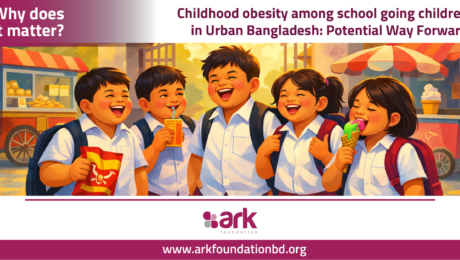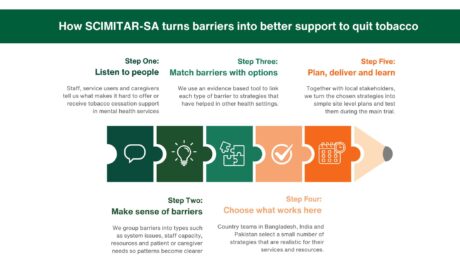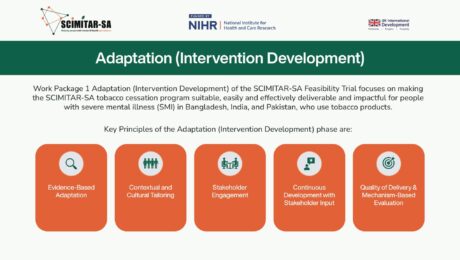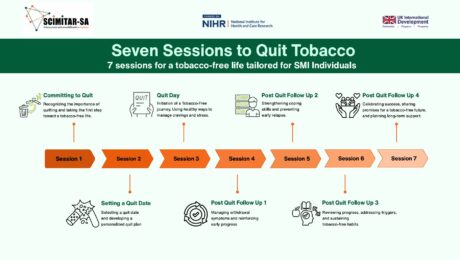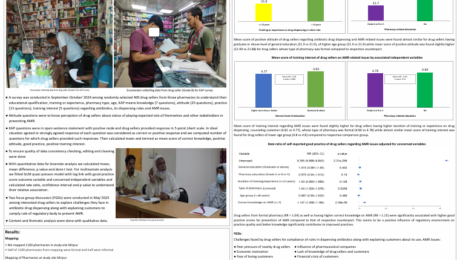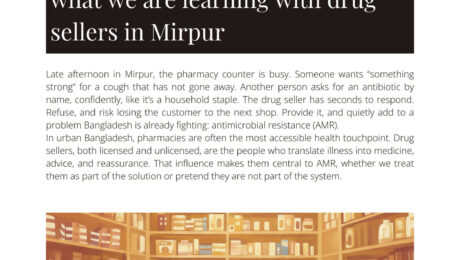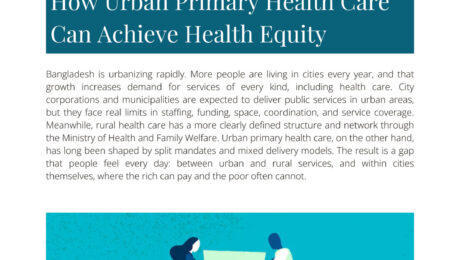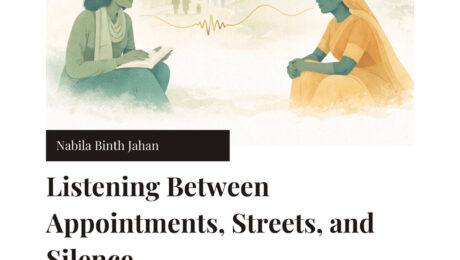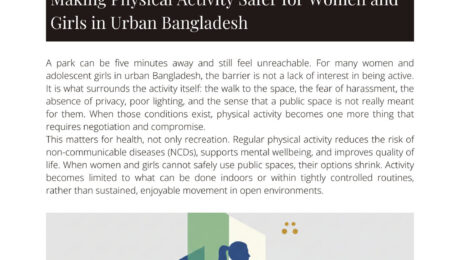Read the PDF here Written by Badruddin Saify For decades, the image of a chubby child in Bangladesh has served as a profound source of pride, probably a visual rebuttal to the historical specter of famine and chronic undernutrition in the country. In our collective cultural memory, physical weight is frequently synonymized with wealth and
- Published in Blog, News and Media
No Comments
Find the HTML version SCIMITAR-SA is built around people and their lived experiences. By listening closely to individuals living with severe mental illness (SMI) and to the caregivers and communities who support them; we are rethinking how support for smoked and smokeless tobacco cessation can be more compassionate, practical, and effective.With recruitment now complete, we’ve
- Published in Infographics, Resources
Find the HTML version here WP1 focuses on adapting the SCIMITAR-SA intervention to meet the cultural, contextual, and delivery needs of communities across South Asia. Stakeholder participation remains central in shaping an effective and accessible model for individuals with SMI.
- Published in Infographics, Resources
Find it here A tobacco cessation intervention designed for individuals with Severe Mental Illness (SMI). The 7-session pathway supports readiness to quit, coping with cravings, personalised quit planning, relapse prevention, and continuous follow-up.
- Published in Infographics, Resources
This study will consist of ten in-depth country case studies examining how specific drowning prevention activities have been implemented. Using a document review and key informant interviews, we will analyze the implementation pathways for both drowning prevention interventions and cross cutting strategies, drawing on both implementation science and policy implementation theories to trace the implementation
- Published in Non-Communicable Disease, Our Work
Written by: Asiful Haidar Chowdhury (Senior Research Fellow) Late afternoon in Mirpur, the pharmacy counter is busy. Someone wants “something strong” for a cough that has not gone away. Another person asks for an antibiotic by name, confidently, like it’s a household staple. The drug seller has seconds to respond. Refuse, and risk losing the customer
- Published in Blog, News and Media
Written by: Marhouba Khan Asfi (Research Assistant) Bangladesh is urbanizing rapidly. More people are living in cities every year, and that growth increases demand for services of every kind, including health care. City corporations and municipalities are expected to deliver public services in urban areas, but they face real limits in staffing, funding, space, coordination, and
- Published in Blog, News and Media
Written by: Nabila Binth Jahan (Junior Research Associate) Fieldwork rarely begins with a recorder switched on. More often, it begins with waiting, outside clinics, in narrow lanes, beside busy roads, or under the sun, hoping someone will spare a few minutes to talk. In the urban slum areas of Dhaka where CHORUS Projects 1 and 2
- Published in Blog, News and Media
Written by: Umme Salma Anee (Senior Research Assistant) A park can be five minutes away and still feel unreachable. For many women and adolescent girls in urban Bangladesh, the barrier is not a lack of interest in being active. It is what surrounds the activity itself: the walk to the space, the fear of harassment, the
- Published in Blog, News and Media

